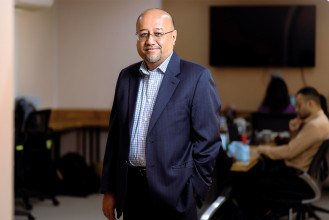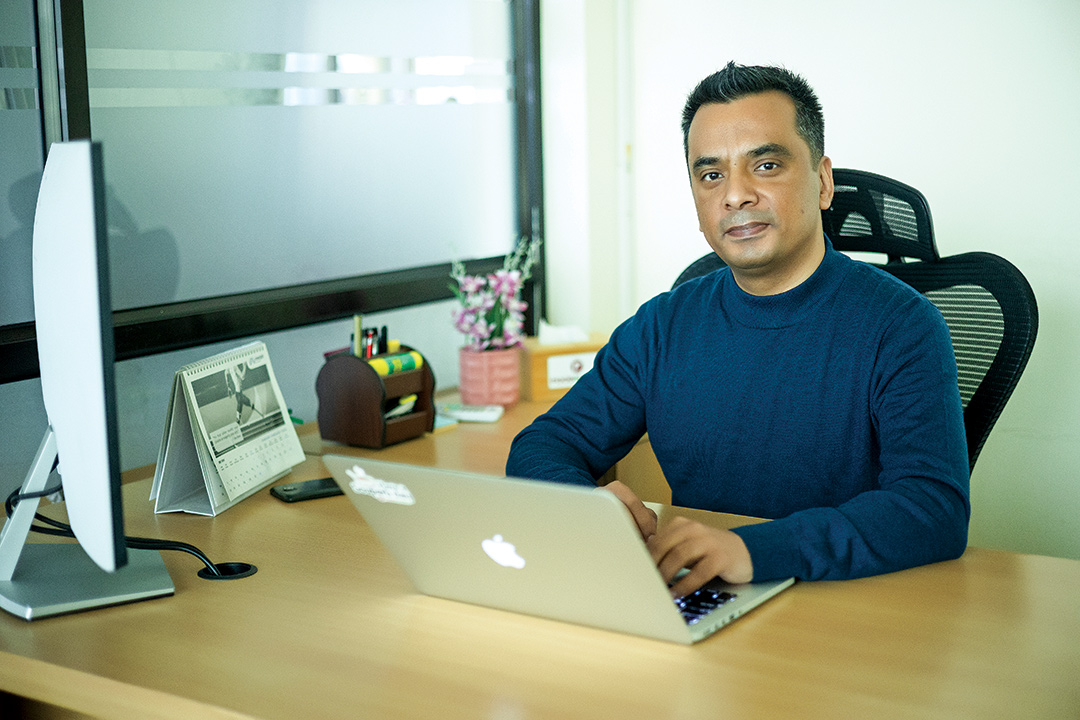
Manohar Adhikari, Managing Director, Foodmandu
Foodmandu has become a household name and the go-to app to order food from the many restaurants and hotels that it affiliates with. When the company was initialised in 2010, it was a major challenge being a business model that was not just new to the country but one that had to face resistance from customers and partners to reach where it is today. Online food delivery especially picked up pace in the last two years since the Covid 19 pandemic hit the world marking a rapid evolution for companies like Foodmandu, also unlocking a permanent fixture in the dining landscape. Manohar Adhikari, the brain behind Foodmandu, says establishing the company was no easy task but an arduous journey of a little more than a decade. “There were a lot of challenges we had to face when I first thought of starting the company in 2010 because it was a totally new concept in the country,” shares Adhikari. “Making people understand the concept was the first major challenge,” he recalls also saying that getting eateries onboard was a big problem too. “Convincing restaurant owners was an ordeal with only a handful appreciating the idea,” he shares. Foodmandu began offering their service with just a dozen food joints and that too within their personal network. Over these years, it has seen an exponential growth with approximately 800 restaurants associated with its platform. “In fact, at present we have not been able to accommodate many restaurants because the number of requests to the list is very high,” he states. With such lukewarm response from the market, what made Adhikari stick to his concept? “It was the long-term vision that people would soon adopt and adapt to the digital world, it was not a question of ‘if’ but ‘when’,” he shares. There are businesses, he explains, which will take time to evolve but one must not lose focus. “If I hadn’t remained focused and determined, Foodmandu would not have been in existence now because the initial days were really harrowing.” “I started with just a partner and two delivery riders and in the initial days we would be lucky to have even five customers daily but all along I knew the concept of Foodmandu had tremendous potential,” he reminisces. Today, the company is providing employment to over 300 people including delivery riders. “I am from a family with no business background and I didn’t have a single friend who knew anything about business but I had oodles of belief and confidence that Foodmandu would one day be a game-changing concept,” he says with a conviction that comes from strong self-belief. He says it’s never easy to start a business, let alone something that is completely novel, “When you open a business that is already in existence it’s so much easier as they already are players in the market. So, you can always learn from their experiences.” However, Foodmandu was a new model and he had to essentially create a market first. It was not about improving on an existing idea and grabbing a share of the pie. “We had to bake the pie. And to top it all, there was the problem of managing capital. Even to this day, when there have been so many technological advancements people still refrain from investing in online businesses because it takes quite a number of years before any online business starts giving returns,” he shares.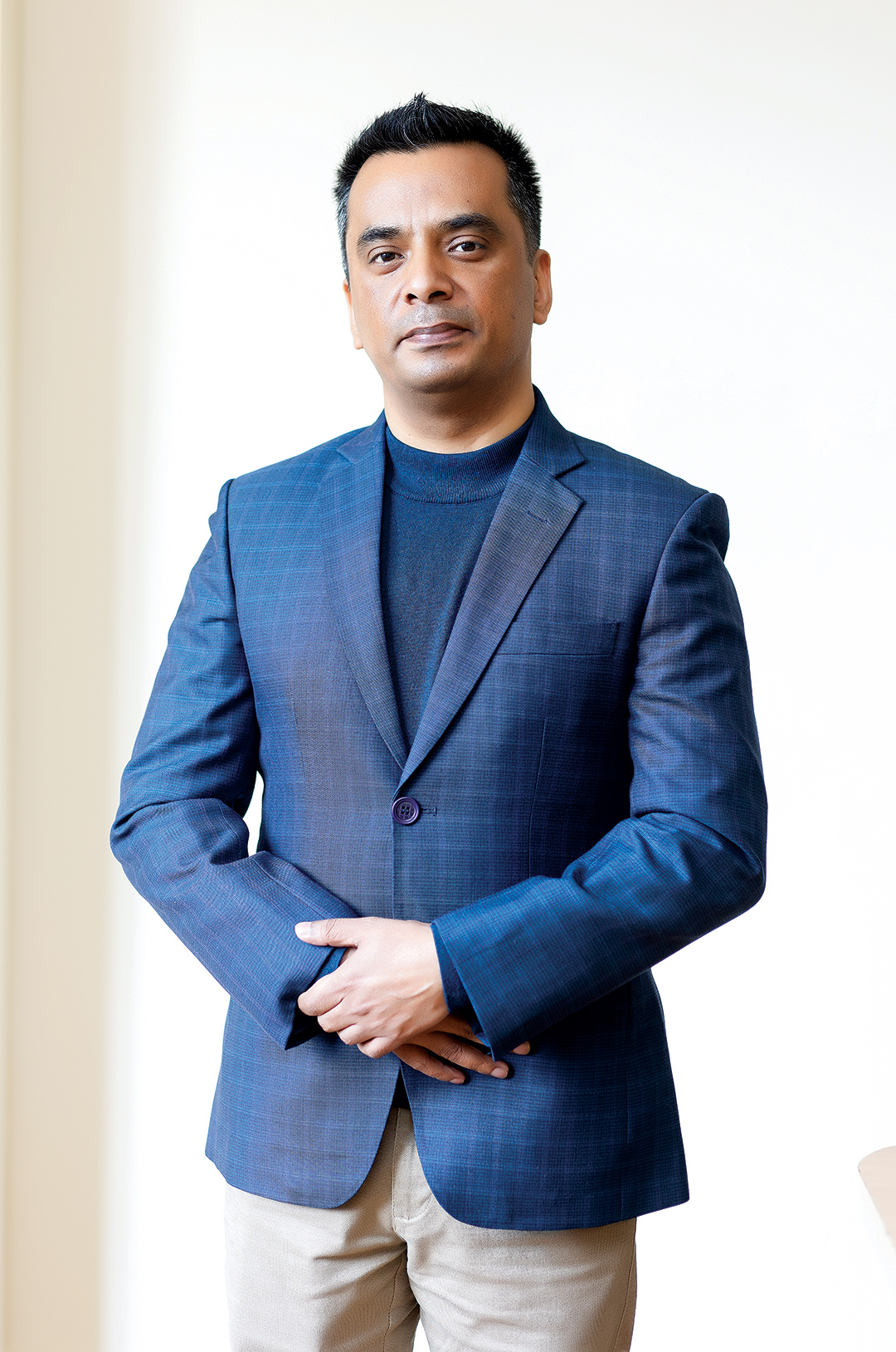 Major investments are happening in technology-based businesses today and this is why entities like the Dolma Impact Fund are necessary for Nepal, states Adhikari. “Banks are not as interested in providing finances to long-term online businesses.” The Rs 460 million fund that Foodmandu recently received from Dolma will be utilised in various areas, he shares, with a major portion going towards enhancing technology. “The reason why we will be focusing on the technology side is fundamentally to provide our customers a better experience.” In fact, customers are and should be at the heart of any enterprise, he says, because they are the ones who keep you in business.
“Having a wealth of information and knowledge is futile unless you are passionate about utilising it,” he says, adding that the very idea of launching Foodmandu came from his passion for computer programming. “People are surprised that I am involved in a digital business and love software programming even though I don’t have any formal education on the subject.”
Adhikari shares that his love for computers started from secondary school. “I began doing odd jobs when I joined high school but software programming was always at the back of my mind,” he reminisces, “And I did take some crash courses in computer languages.” Gradually, this passion led to Adhikari joining a small company in 2001 as a software developer. But in between joining high school and getting into the software world, he relates he even tried his hand at poultry farming. “There was always this urge to be occupied with some work or the other, whether big or small, because the experience you gain is fulfilling,” he says. "Even if it is a bitter experience, you can learn from the mistakes," he explains.
Major investments are happening in technology-based businesses today and this is why entities like the Dolma Impact Fund are necessary for Nepal, states Adhikari. “Banks are not as interested in providing finances to long-term online businesses.” The Rs 460 million fund that Foodmandu recently received from Dolma will be utilised in various areas, he shares, with a major portion going towards enhancing technology. “The reason why we will be focusing on the technology side is fundamentally to provide our customers a better experience.” In fact, customers are and should be at the heart of any enterprise, he says, because they are the ones who keep you in business.
“Having a wealth of information and knowledge is futile unless you are passionate about utilising it,” he says, adding that the very idea of launching Foodmandu came from his passion for computer programming. “People are surprised that I am involved in a digital business and love software programming even though I don’t have any formal education on the subject.”
Adhikari shares that his love for computers started from secondary school. “I began doing odd jobs when I joined high school but software programming was always at the back of my mind,” he reminisces, “And I did take some crash courses in computer languages.” Gradually, this passion led to Adhikari joining a small company in 2001 as a software developer. But in between joining high school and getting into the software world, he relates he even tried his hand at poultry farming. “There was always this urge to be occupied with some work or the other, whether big or small, because the experience you gain is fulfilling,” he says. "Even if it is a bitter experience, you can learn from the mistakes," he explains.
When the company was initialised in 2010, it was a major challenge being a business model that was not just new to the country but one that had to face resistance from customers and partners to reach where it is today. Online food delivery especially picked up pace in the last two years since the Covid 19 pandemic hit the world marking a rapid evolution for companies like Foodmandu, also unlocking a permanent fixture in the dining landscape.In 2004, Adhikari got a break in his career when he was hired by D2Hawkeye, an IT firm which was already well-established in the country. While there, he received a project from a client in the United States and it marked the beginning of his entrepreneurial journey. “I quit D2Hawkeye in 2006, formed a small team and began outsourcing work,” he recalls. “It was my venture but the work was based on other people’s requests and requirements. It was not something I could do independently, or which I could steer in the direction I wanted,” he says. This got him thinking about and working on the concept of Foodmandu. “While working at D2Hawkeye, lunch was like a monotonous affair, we had to eat the same food every day,” he recalls, “And I thought to myself: why not develop a website where restaurants would be listed and people could order the food they prefer. It was basically taking a problem which we had to face daily and provide a solution to it.” He says that often people come up with wonderful business concepts but are not able to do much because they lack the matching resources. Moreover, it becomes a difficult proposition when it comes to an online business because such businesses do not become profitable in a short period of time, he adds. “Even if you look at the global trend, you will realise that anybody who has invested in a digital enterprise does so with a long-term vision.” However, he reveals he was prepared for the challenges from the very first day he gave shape to his dream. Opening Foodmandu was the easy part, says Adhikari, “It was now about trying to sustain the business.” But one good aspect about his business, he says, is they did not have competition for quite some time. “We didn’t have any competition for the first five years and that gave us ample time to learn the fundamentals of our type of business without having to worry about any competitor,” he smiles. Since there was no market literally for online delivery of food, Adhikari says it also allowed him to make mistakes and learn from those experiences. At present, there is competition, but since Foodmandu is the pioneer in the sector, they do have the first-mover advantage. Foodmandu today is considered to be a successful venture by a majority of the people, but Adhikari feels success is a relative word. He believes people have their own barometers to measure success and it also depends on the perspective through which you are looking at certain things. “What you have to keep in mind is to stay focused on what you believe in even when the world has given up hope in you,” he stresses. He recalls the time when Foodmandu started with only four team members and how difficult it was to survive back then. What kept them going, he states, is the belief that the business would do well in the long run. The growth has added to his responsibilities of ensuring that the company runs successfully. “There are over 300 employees who have chosen to work with us which means we are responsible for 300 families now.” And this is one reason why Adhikari will continue to stay on top of his game with continual focus on upgrading the customer experience because ultimately it is the customers who decide the fate of any business.
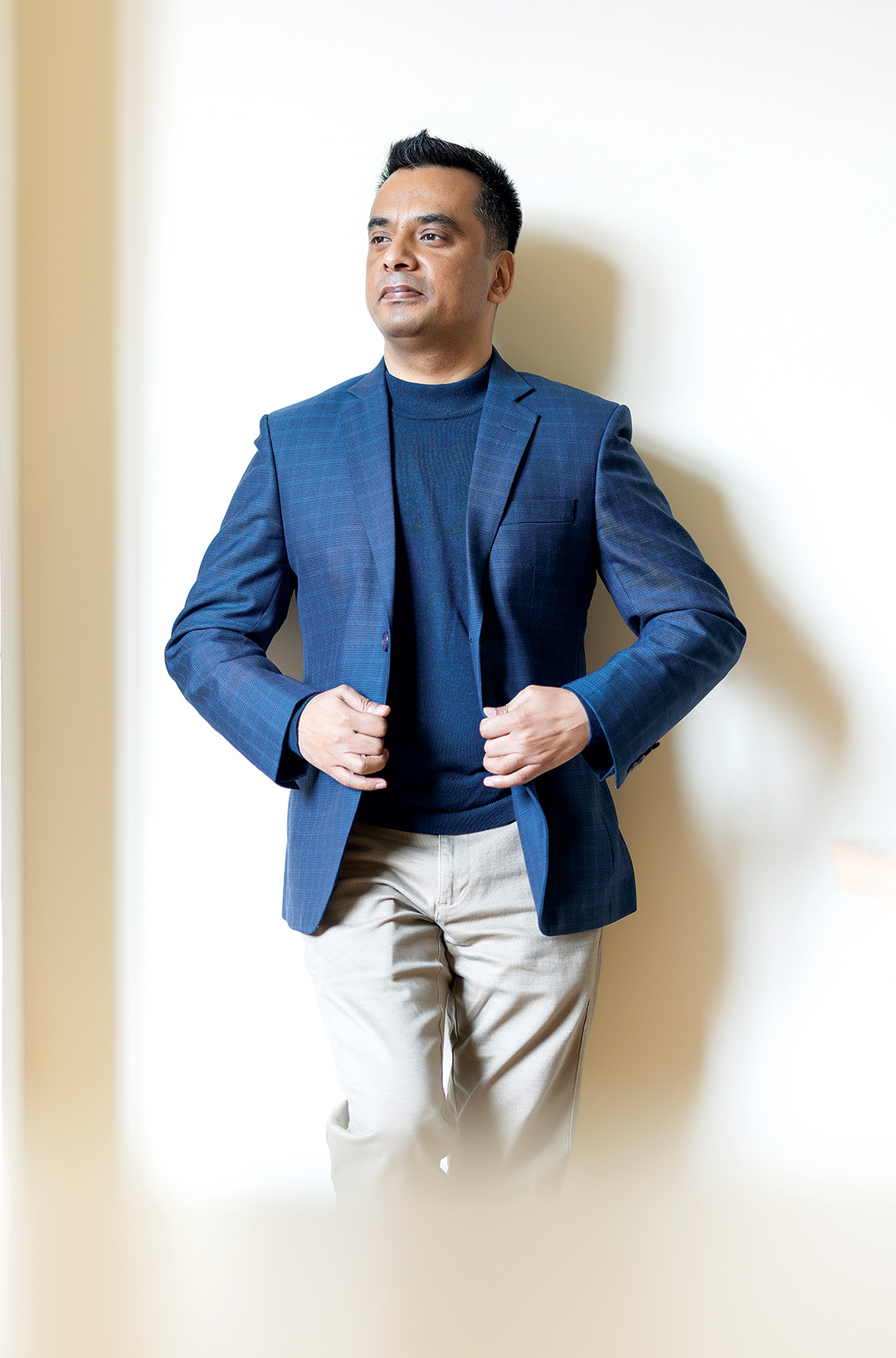 Talking about the values he is guided by in life, he says it is ‘fair practice’ whether within the team or with external clients. He also believes in innovation and originality. “There is no harm in learning from others but one must add an original component to any idea, besides being solution centric. Even in life, there will always be problems, but are you going to find a solution or drown in the problem?”
Adhikari recently made a conscious decision to hire bicycle riders, and this stood the company in good stead. At present, Foodmandu has over 60 bicycle riders and Adhikari plans on raising this number due to the fact that the company has received a lot of positive response even from people outside Nepal. “People have lauded us for providing employment to that segment of youngsters who cannot afford a motorcycle and environmentalists on the other hand are seeing it as a wonderful ‘green’ initiative,” he elucidates. The other green initiative he has taken is the use of paper bags over plastic bags. “It is through such small initiatives that you can have a bigger impact not only on your business but on the community,” he says adding, “Anybody can etch their name on sand. One needs to do so on stone.”
Unlike most other new businesses which often tend to displace similar existing enterprises, Foodmandu has not displaced any existing business, says Adhikari, “Because we were a totally new concept.” He feels immense pride in the fact that till date no business has been displaced by his company. “The bigger we grow, the more true value we will create for the economy at large.”
The one thing that Adhikari laments in all these years of doing business is the ambiguous policies that the government comes up with time and again. “The only thing I am looking for is defined policies because the lack of a proper policy makes it all the more difficult to work,” he states. When rules and regulations are clearly spelt out, then businesses can be aware of what is legal and what is not, he says. “Otherwise there is always this fear at the back of the mind.”
Talking about the values he is guided by in life, he says it is ‘fair practice’ whether within the team or with external clients. He also believes in innovation and originality. “There is no harm in learning from others but one must add an original component to any idea, besides being solution centric. Even in life, there will always be problems, but are you going to find a solution or drown in the problem?”
Adhikari recently made a conscious decision to hire bicycle riders, and this stood the company in good stead. At present, Foodmandu has over 60 bicycle riders and Adhikari plans on raising this number due to the fact that the company has received a lot of positive response even from people outside Nepal. “People have lauded us for providing employment to that segment of youngsters who cannot afford a motorcycle and environmentalists on the other hand are seeing it as a wonderful ‘green’ initiative,” he elucidates. The other green initiative he has taken is the use of paper bags over plastic bags. “It is through such small initiatives that you can have a bigger impact not only on your business but on the community,” he says adding, “Anybody can etch their name on sand. One needs to do so on stone.”
Unlike most other new businesses which often tend to displace similar existing enterprises, Foodmandu has not displaced any existing business, says Adhikari, “Because we were a totally new concept.” He feels immense pride in the fact that till date no business has been displaced by his company. “The bigger we grow, the more true value we will create for the economy at large.”
The one thing that Adhikari laments in all these years of doing business is the ambiguous policies that the government comes up with time and again. “The only thing I am looking for is defined policies because the lack of a proper policy makes it all the more difficult to work,” he states. When rules and regulations are clearly spelt out, then businesses can be aware of what is legal and what is not, he says. “Otherwise there is always this fear at the back of the mind.”
Foodmandu began offering their service with just a dozen food joints and that too within their personal network. Over these years, it has seen an exponential growth with approximately 800 restaurants associated with its platform.He further states he would like to see rules that are more sector specific and cites the example of the government’s decision to implement the Social Security Fund which has become a major hassle for companies like Foodmandu where a majority of the employees are on part-time basis. “The government might have introduced it with good intention but it is not practical for us because most of our workers are on temporary employment,” he explains. “Our riders do not join us with a long-term plan to make it their career, so when policies are being framed, the government should look into the different types of industries in the country and how the policies are going to affect them individually.” Focused and diligent, Adhikari has set his target on growing Foodmandu by at least ten times within the next five years. “That’s the target we have set and we will be doing what we can to achieve it; may be open newer verticals like Foodmandu Fresh which deals with grocery items,” he shares. “I basically want any person who is associated with us in any form to feel proud of that association,” he concludes. Fact Box FOODMANDU Business type: Food Tech Established: 2010 Initial investment: Rs 1,000,000 Number of promoters: 2 Turning Point: I can’t think of any noticeable turning point so far. It was a gradual and organic growth with a lot of ups and downs. Number of riders: 200+ USP: Over the years we have developed to become a trustworthy brand. Estimated revenue: Can’t disclose Number of partners (restaurants): 800+ Number of deliveries per day: 1500+ Plans: New Vertical Additions, Geographical Expansion, Technology Advancement READ ALSO:
Published Date: February 16, 2022, 12:00 am
Post Comments
E-Magazine
RELATED In the Lead


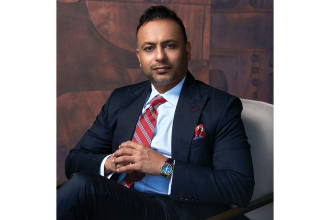
-1767340083.jpg)
